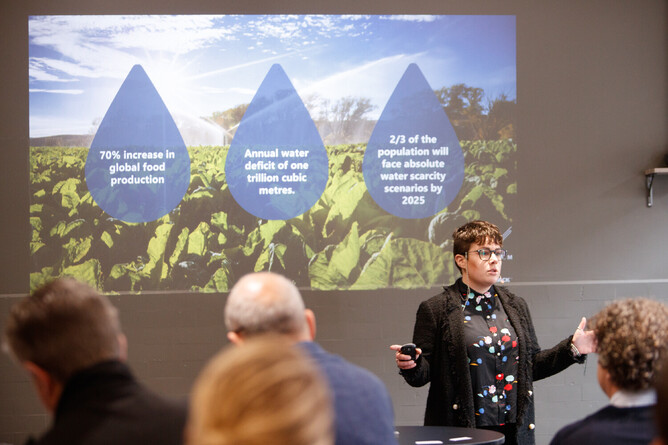Article by NZ Entrepreneur
From plant-based ‘tuna’, to technology that uses insect odorant receptors to make a device that can smell and taste, Sprout Agritech is boosting agtech and foodtech companies around Aotearoa. Starting as an accelerator based out of The Factory in Palmerston North in 2015, they created their own company in 2019 and now run two cohorts a year and can invest up to $40m in companies in New Zealand. Katherine Blaney found out more.
“At the time we started, agtech was around though it wasn’t really spoken about and no one in New Zealand was really focusing on it,” says Chelsea Millar, Marketing & Communications Lead. “For us to advance into the future, we needed to look at technology and get some smart people disrupting this value chain which has thousands of years of history and processes.
”Sprout partners with agtech and foodtech entrepreneurs and companies to help them build global businesses, which are solving some of the planet’s biggest challenges. They are currently seeing a trend with companies creating alternative proteins including Sea Swell vegan tuna, Flip-It Foods, who have developed 100% plant-based “ribz” on their mission to make it easier and more accessible for Kiwis to eat plant-based foods and Vince, with their “clean label” vegetable mince.
There is also a surge in companies focusing on artificial intelligence and machine learning solutions for the horticulture industry. Cropsy has built technology that monitors pest and disease presence in vineyards and can detect issues well before a human would be able to.
The Sprout Accelerator is three months long with eight to twelve companies in a cohort. “One of the things we often see is a company finishing the Accelerator with the confidence that they can do it. New Zealand has a very small market but it’s a fantastic market to be able to test your product. People are going away with more of a solid plan and milestones they can work towards achieving. They realise that if they can hustle, talk to the right people to build their network and their domain knowledge, then they’re actually going to get a lot further than just asking for cash to get the business going,” says Millar.
Sprout’s ethos is to focus on the team first and foremost, both for the accelerator and the companies they look to invest in. If the team is sound and strong and fits the skill set that company needs, then they will be a great candidate for working with Sprout.
Their mandate is to invest in New Zealand-based companies targeting global markets but they will consider international companies with significant operations in Aotearoa.
Teams from the Accelerator automatically have a chance to pitch to Sprout’s investment team. They also consider exceptional companies who are innovating in the agtech and foodtech sectors that may not have gone through the Accelerator. Investment on offer is up to $1m for a single company, with the potential to syndicate larger rounds if needed.
Sprout’s investment arm funded Scentian Bio who are combining insect biology with nanotechnology to create a revolution in sensing solutions. Their technology is used to identify off-notes in food and beverages, detect fraud and adulterants in raw materials, create new products and provide an objective measure of flavours and fragrances.
As someone who has been with Sprout right from the start, Millar has this advice for anyone who has an idea but isn’t sure how to turn it into a business, “Go and ask for help. It’s that simple.”
She encourages entrepreneurs to find people who really understand their customer and partner with them. They have companies approach Sprout as a partner to support their growth because they take the time to understand what a business is trying to achieve to ensure they can work together—not just as a mentor, but as a partner. The top skills Millar thinks an entrepreneur should develop are, “Listening, being resilient and learning that pivoting is a good thing.”
Right from the start, Sprout has worked with Callaghan Innovation who, along with corporate partners, Millar says were the catalyst to their current success. The Central Economic Development Agency (CEDA) came on board as a partner a few years later and they have now seen more than 60 companies go through the accelerator across seven cohorts.
They just opened their 2022 accelerator application intake for anyone working on an idea for agtech or foodtech. They don’t require companies to relocate to Palmerston North and participants benefit from Sprout’s proximity to nearly 4000 R&D scientists, Massey University and Fonterra’s R&D centre.


